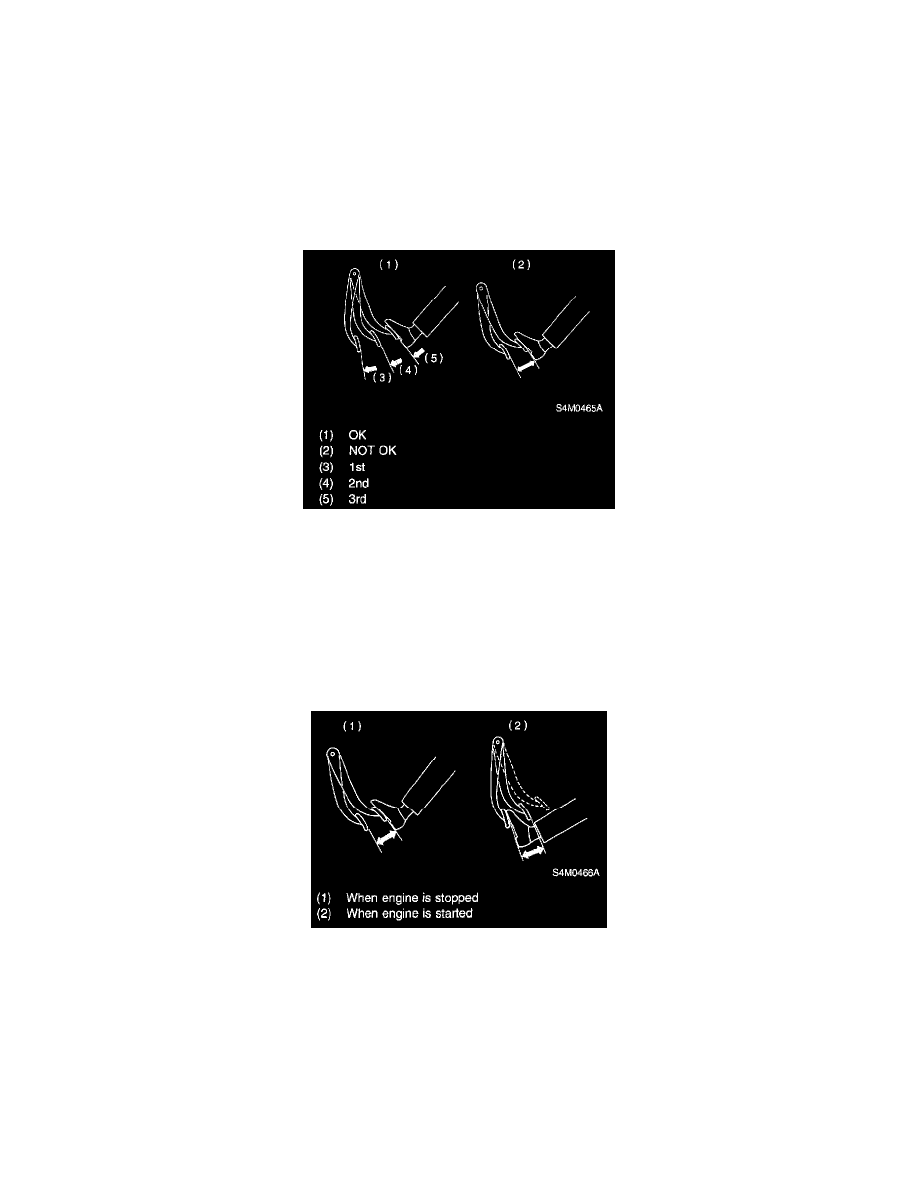Legacy GT LTD Sedan AWD F4-2.5L SOHC (2001)

Vacuum Brake Booster: Testing and Inspection
Without Using Gauges
INSPECTION
OPERATION CHECK (WITHOUT GAUGES)
CAUTION: When checking operation, be sure to securely apply the hand brake.
-
Checking without gauges
This method cannot determine the exact portion which has failed, but it can provide a rough understanding of the nature of the failure if
checking is conducted in accordance with the following procedures.
-
Air tightness check
Start engine, and run it for 1 to 2 minutes, then turn it off. Depress brake pedal several times applying the same pedal force as that used in
ordinary braking operations. The pedal stroke should be greatest on the 1st depression, and it should become smaller with each successive
depression. If no change occurs in the pedal height while in a depressed state, brake booster is faulty.
NOTE:
-
In the event of defective operation, inspect the condition of the check valve and vacuum hose.
-
Replace them if faulty and conduct the test again.
-
If no improvement is observed, check precisely with gauges.
-
Operation check
1. With engine off, depress brake pedal several times applying the same pedal force and make sure that the pedal height does not vary with each
depression of the pedal.
2. With brake pedal depressed, start engine.
3. As engine starts, brake pedal should move slightly toward the floor. If no change occurs in the pedal height, brake booster is faulty.
NOTE: If faulty, check precisely with gauges.
-
Loaded air tightness check
Depress brake pedal while engine is running, and turn off engine while the pedal is still depressed. Keep the pedal depressed for 30 seconds; if
no change occurs in the pedal height, brake booster is functioning normally; if the pedal height increases, it is faulty.
NOTE: If faulty, check precisely with gauges.
